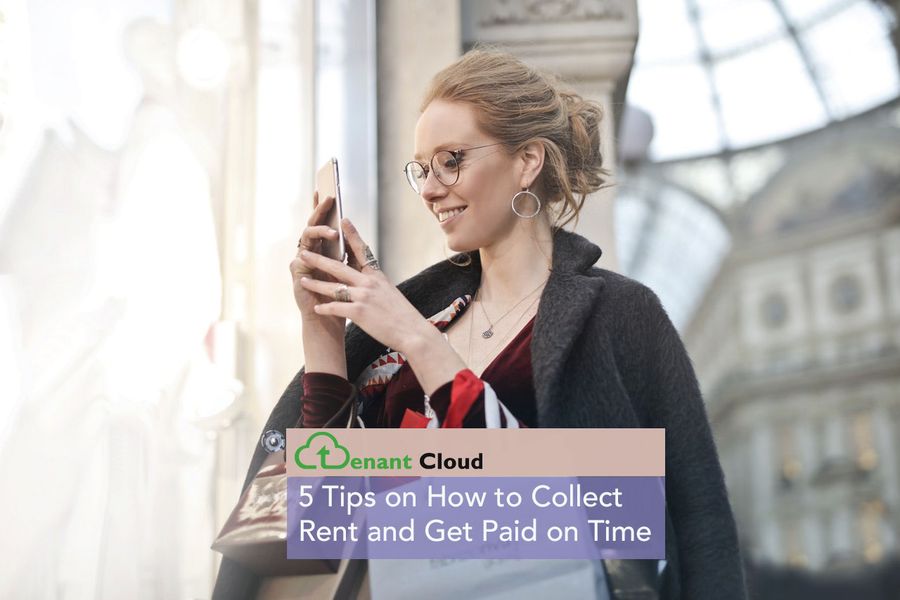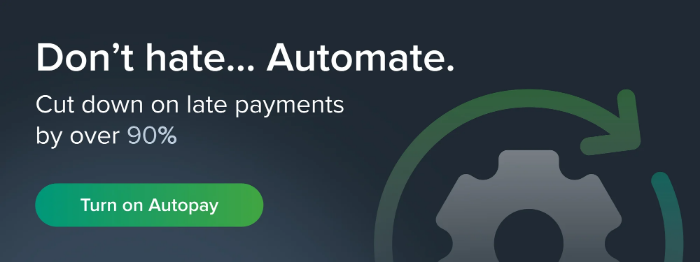As a landlord, having long-term tenants who communicate well with you and are responsible is ideal. It’s especially helpful when they’re responsible; you’ll receive rental payments on time, which will improve your cash flow and help you pay your upcoming bills. Here are some ways to significantly increase your chances of receiving rental payments on or before their due dates:
1. Conduct High-Quality Background Checks
During the application process, use a consistent procedure for checking applicants’ financial backgrounds. This will show you how likely prospective residents are to pay their rent on time (as well as help you avoid discrimination lawsuits). If applicants have rented in the recent past, gather and check their residential payment histories for the past two years. You’ll have a much better idea of what to expect from each person when you do this. While checking on residential payment history, you’ll also want to conduct a credit check and ensure applicants meet your standard income requirement, or have section 8 housing vouchers to cover rent. By fully vetting applicants’ financial history, you can save your future self a lot of time, energy, and headaches.
2. Require Automatic Online Rental Payments
Make your life easier and your future tenants’ lives easier by using an online rental payment portal, like TenantCloud where residents can set up online payments. An interface like this will help you and your residents immensely: it makes paying rent easier for most modern tenants, lightens your bookkeeping load, helps you track payments more easily, ensures you don’t accidentally lose a payment, and saves you and your tenants time. By setting up online payments the required way to pay, you’ll significantly reduce late payments. Of course, if you have someone who strongly objects to online payments, like an older tenant, you can always make an exception and accept a check.
Related: Best Way to Collect Rent: Cash vs Online Payments
Best Way To Collect Rent: Online Rent Payments With No Transaction Fees
3. Heavily Emphasize the Payment Process During Lease Signing
Once you’ve approved your potential tenants’ applications and it’s time for them to sign on dotted lines, make sure to spend a good amount of time going over rental payment details, which should be outlined in the lease, so they know exactly what to expect. Explain that you don’t accept cash payments, a best practice if you have an online payment portal, walk them through the signup process, detail what happens if they pay early or late (maybe you offer an early payment discount incentive or have a late fee they should know about), and clearly describe what could happen if they don’t pay at all. Be sure to send them home with access to up-to-date documentation that reiterates what you told them so they can easily refer back to this information in writing when they have questions. Good explanations and continuous access to this information will reduce future misunderstandings.
4. Offer an Incentive for Tenants Who Consistently Pay On Time or Early
By offering incentives for good rental payment habits, you’ll reinforce the importance of it and increase the number of positive interactions you have with your residents. For those who pay early, you could offer a reduced rental rate. For those who consistently pay on time, you could give them a gift certificate. Whatever you offer as a reward to responsible tenants, acknowledging their on-time payments will continue to foster a positive relationship with them.
5. Communicate Clearly When You Receive Late Payments or No Payments
When there’s been a late payment or no payment, ask your tenant why this happened, what can be done to rectify the situation, and what systems they can put in place to avoid it from happening in the future. If you’ve received a late payment and have a late-fee policy, be sure to apply it. If you haven’t received a payment and you’ve communicated clearly and reasonably with your tenants and do not see a change in behavior, be sure to hold to your policies and take the necessary steps you outlined during lease signing.
Related: Late Payments: an Important Part of Every Rental Business
Also, keep in mind there may be a good reason for late payments or no payments. It may be that you have an elderly resident who is starting to suffer from dementia. In special exception cases, like this one, work with the tenant or, more likely, the tenant’s legally assigned party to find a solution. With these tips, you will increase your likelihood of collecting rent on time, making your life easier and helping you continue to build positive relationships with your tenants. If you have any additional tips for collecting rent on time, leave a comment below. We’d love to hear your thoughts.
How To Collect Rent From Tenants: Top Tips For New Landlords







